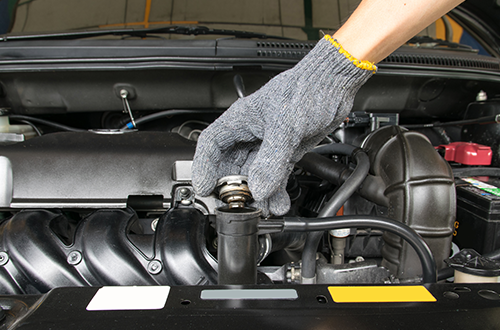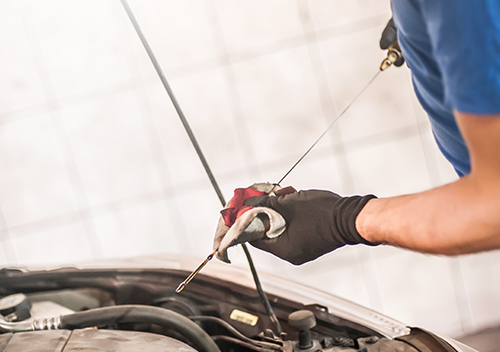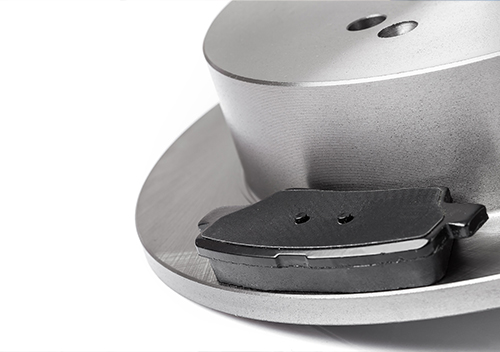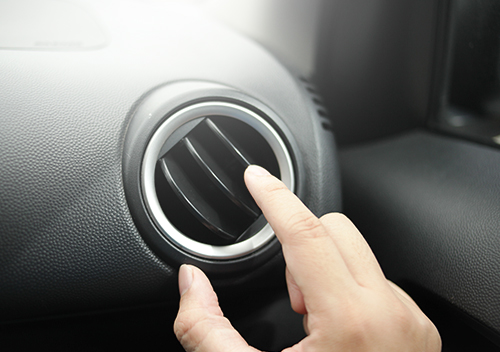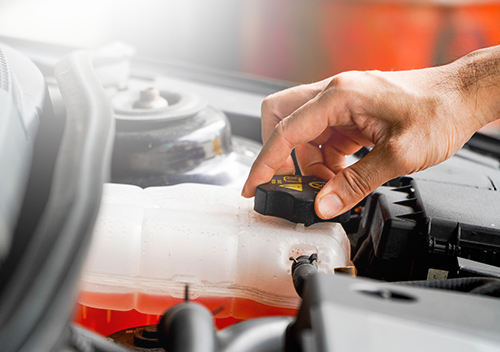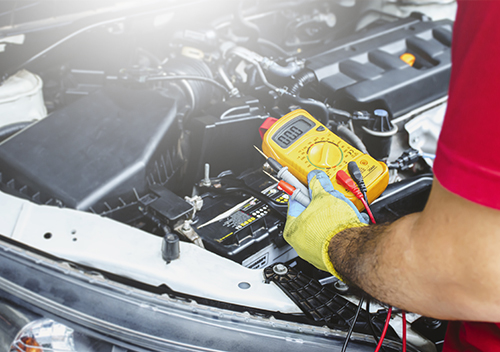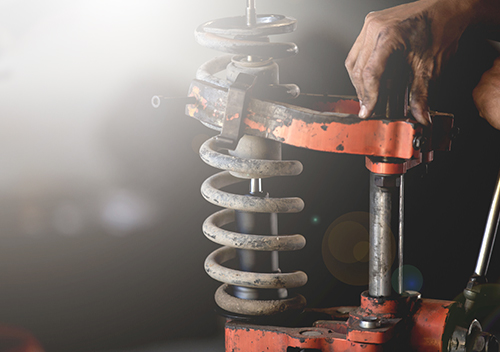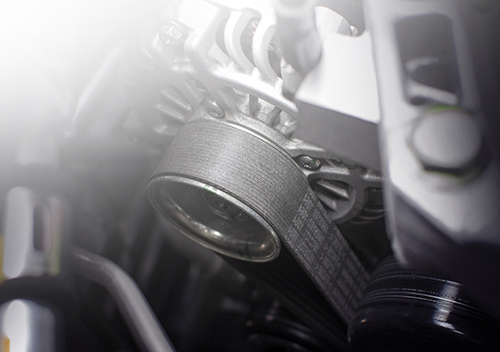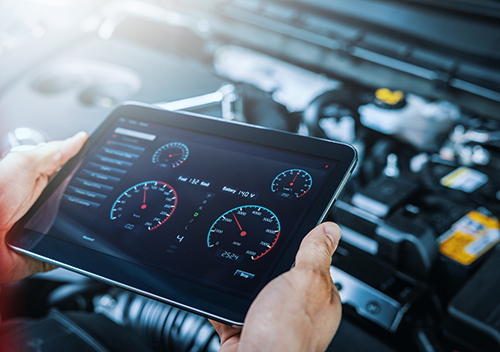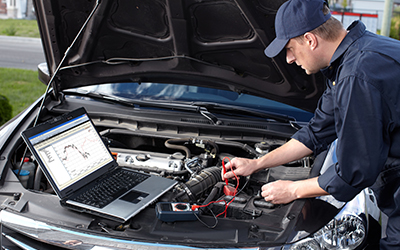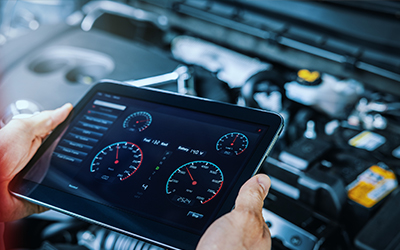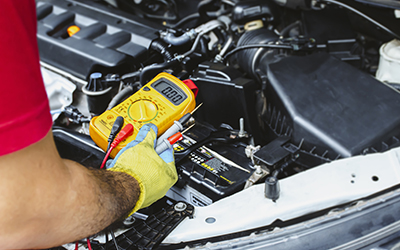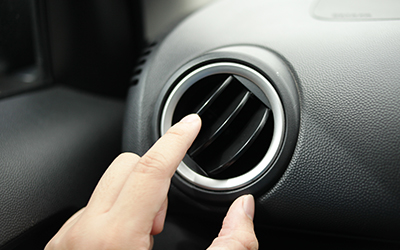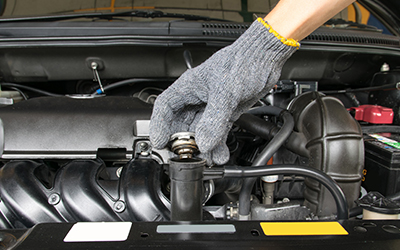Your vehicle's engine and components create immense heat that needs to be controlled. Your vehicle will be fitted with a water pump, thermostat, hoses, fans, and a radiator to help keep your engine from overheating. An overheated engine and its components will begin to deteriorate, reducing the life of your engine or even destroying the engine beyond repair.
The heating system of your vehicle is run by a small part called a heater core. This small device creates heat for the passenger cabin so you may stay warm during cold weather. We don't often see issues with heating your cabin, but if your blowers or heat are not functioning, please contact us.
Radiator Repair
Your vehicle's primary coolant system works within your radiator. Your vehicle's radiator will circulate engine coolant through the engine block, transferring excess heat from the engine and dissipating it through the radiator fins. The radiator contains liquid coolant that becomes old and contaminated over time and requires periodic replacement. To maintain optimal cooling function, consider regular coolant system flushes as part of your vehicle's routine maintenance.
Other components may fail within the cooling system, which prevents your cooling system from operating correctly. A water pump, thermostat, hose, and even fans can fail. When this occurs, your engine will begin to overheat. Luckily, nearly every vehicle is equipped with an engine heat indicator that lets you know if your engine is overheating.
Radiator Flush
As your radiator operates, sludge, rust, and other solid deposits will accumulate, reducing the effectiveness of the system. Regular radiator flushes will help your cooling system work properly and increase the longevity of your engine.
If you are experiencing overheating, call Waters Auto Repair today. Our expert mechanics can diagnose and treat any cooling system issues.






